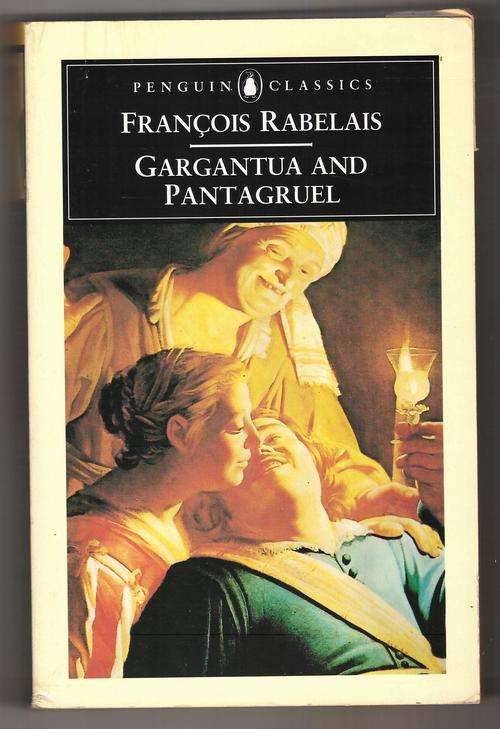
Gargantua and Pantagruel - Francois Rabelais
Check my rate
View locations
| Main centres: | 1-3 business days |
| Regional areas: | 3-4 business days |
| Remote areas: | 3-5 business days |

| Main centres: | 1-3 business days |
| Regional areas: | 3-4 business days |
| Remote areas: | 3-5 business days |
We combine postage, so do look at our other items on offer.
Postage prices outside of South African borders will differ. Please enquire before purchasing.
Dispatched within 3 business days.
Condition : Good.
Name of previous owner on flyleaf.
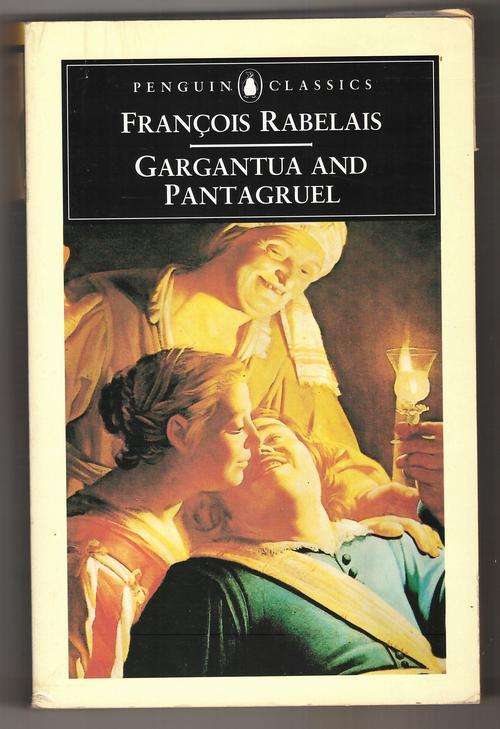
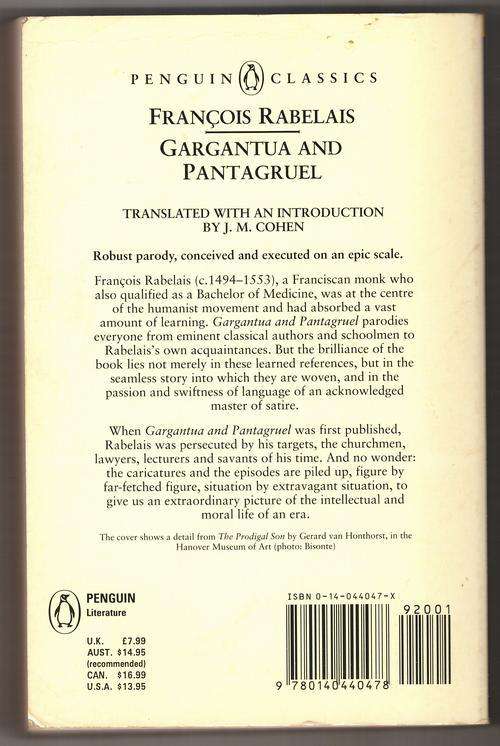
The dazzling and exuberant moral stories of Rabelais (c. 1471-1553) expose human follies with their mischievous and often obscene humour, while intertwining the realistic with carnivalesque fantasy to make us look afresh at the world. Gargantua depicts a young giant, reduced to laughable insanity by an education at the hands of paternal ignorance, old crones and syphilitic professors, who is rescued and turned into a cultured Christian knight. And in Pantagruel and its three sequels, Rabelais parodied tall tales of chivalry and satirized the law, theology and academia to portray the bookish son of Gargantua who becomes a Renaissance Socrates, divinely guided in his wisdom, and his idiotic, self-loving companion Panurge.
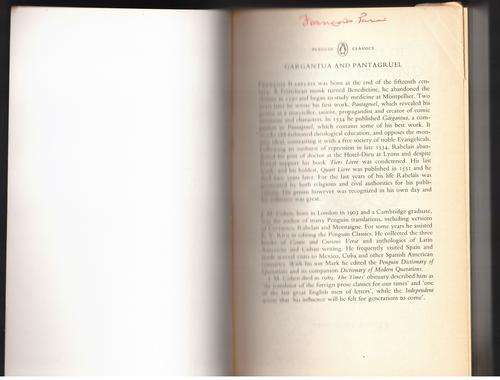
About the author (2005)
One of the leading humanist writers of the French Renaissance, Rabelais was at first a Franciscan and then a Benedictine monk, a celebrated physician and professor of anatomy, and later cure of Meudon. The works of Rabelais are filled with life to the overflowing, hence the term "Rabelaisian." His principal protagonists, Gargantua and his son, Pantagruel, are appropriately giants, not only in size, but also in spirit and action. The five books of their adventures are separate works, containing, in different measure, adventures, discussions, farcical scenes, jokes, games, satires, philosophical commentaries, and anything else that a worldly, learned man of genius such as Rabelais could pour into his work. His style is innovative and idiosyncratic, marked by humorous neologisms made up from the learned languages, Greek and Latin, side by side with the most earthy, humble, and rough words of the street and barnyard. His Gargantua, published in 1534, satirizes the traditional education of Parisian theologians and, in the Abbe de Theleme episode, recommends a free, hedonistic society of handsome young men and women in contrast to the restrictive life of monasticism. The gigantic scope of Rabelais's work also reflects the Renaissance thirst for encyclopedic knowledge.
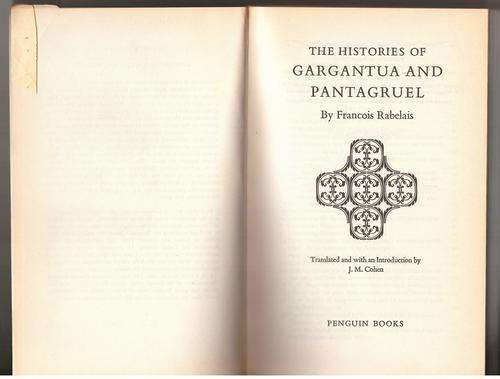
Bibliographic information :
Please Click --->
HERE <--- to see all the items PTO Books is selling.